Russia and the United States are about to learn how much international goodwill their renewed progress toward nuclear arms control, as manifested by the New START Treaty, will buy them in other WMD nonproliferation arenas. The two countries have recently confirmed that they will miss their already extended deadlines for eliminating their stockpiles of chemical weapons, as required by the Chemical Weapons Convention (CWC). In principle, this failure could lead to bitter denunciations as well as concrete sanctions imposed by other countries. At present, though, it looks like Moscow and Washington will escape punishment, perhaps in part due to the […]
Latest Archive
Free Newsletter
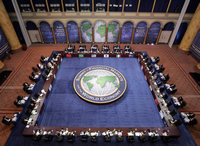
In the 1960s, University of Michigan scholar AFK Organski predicted that a populous, industrious China would rise in the East to challenge America as the world’s paramount power, and that the U.S. and Soviet Union would ally against China despite the communist allegiance shared by the PRC and USSR. Fifty years later, we can be increasingly certain that Organski was impressively ahead of his time with this prediction. Of course, the Soviet Union no longer exists and China is an authoritarian capitalist rather than communist state. But Organski calculated how China would eventually dwarf Russia in demographic and economic might, […]
Pakistan recently decided to move forward with a gas pipeline project with Iran, despite warnings from the United States that involvement could subject Pakistani companies to new United States sanctions. In an e-mail interview, Harsh V. Pant, lecturer in the Department of Defense Studies at King’s College of London, explains the pipeline’s significance in the context of Pakistan-Iran relations. WPR: What are the driving interests for both parties in this pipeline project? Harsh V. Pant: Pakistan’s growing energy needs and Iran’s pool of energy resources make the two states natural economic partners, and served as the impetus behind the proposed […]
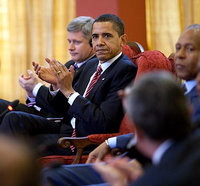
Reports of the imminent death of U.S. hegemony in world affairs go at least as far back as the Nixon administration, and to date, they have all disappointed. While challengers have risen and fallen, none have managed to make themselves full-spectrum superpowers capable of both diplomatic leadership and global military reach, in combination with indisputable economic heft and soft-power appeal. Now, with the “rise of the rest” — concentrated in, but not limited to, the so-called BRIC package of Brazil, Russia, India and China — we are presented with the argument of a collective challenge to American world leadership. Let […]
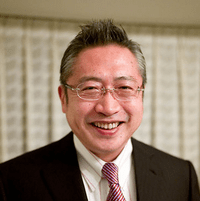
TOKYO – Japanese Prime Minister Naoto Kan’s political future is already on shaky ground following his first election since taking office a month ago. His Democratic Party of Japan took a severe blow in Sunday’s Upper House elections, with voters turning once again to the country’s longstanding political hegemon, the Liberal Democratic Party. Still, the biggest surprise in yesterday’s voting was the strong showing of the start-up Your Party, indicating that while much of the Japanese electorate is yearning for change and strong leadership, their faith in the two major political parties is fast dwindling. Judging from the reaction of […]

A growing population had long been considered a prime determinant of national strength — at least until the “population bomb” crowd commandeered the dialogue almost a half-century ago and declared such growth to be a threat to human existence. But since then, with globalization’s rapid expansion encompassing the bulk of the developing world — and specifically demographic behemoths India and China — we’ve seen industrialization and urbanization work their usual magic on female fertility. As a result, humanity is now projected to top out as a species sometime mid-century and likely decline thereafter. To the amazement of many from my […]
Pakistani President Asif Ali Zardari is on a week-long trip to China where he is strengthening military ties between the two countries. His trip follows that of Pakistani Chief of Staff Gen. Ashfaq Parvez Kayani, who was in Beijing a week ago with the mission of strengthening counterterrorism cooperation. In an e-mail interview, Harsh V. Pant, lecturer in the Department of Defense Studies at King’s College of London, explains the context for China-Pakistan military relations. WPR: Historically, what have been the driving priorities in China-Pakistan defense ties? Harsh V. Pant: Based on their convergent interests vis-à-vis India, China and Pakistan […]
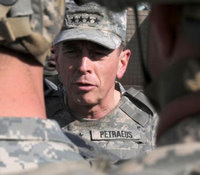
In the two weeks since Gen. David Petraeus was nominated to be the new commander for U.S. and NATO operations in Afghanistan, continuity has been the dominant theme in describing what his replacement of ousted Gen. Stanley McChrystal represents. After all, Petraeus literally wrote the book on U.S. counterinsurgency (COIN) doctrine, which McChrystal tried to apply in Afghanistan over the past year. It only seems natural to expect that Petraeus will maintain the same approach. But continuity is the worst possible option for U.S. efforts in Afghanistan, because it would mean maintaining a strategy that appears increasingly unlikely to succeed. […]
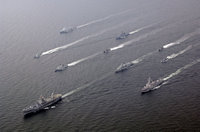
With all of the comparisons being drawn between the presidencies of Barack Obama and Franklin D. Roosevelt, it is surprising that one of FDR’s most famous programs has not emerged as a possible model for U.S. policy today: Lend-Lease. That’s not to suggest that the United States should plunge the rest of the planet into world war as a strategy for domestic economic recovery. But consider the following: First, global security challenges are on the rise. The dark side of globalization means that technologies and capabilities that previously were the prerogatives of states have increasingly filtered down to non-state actors […]
President Barack Obama used an interview with the Milan daily Corriere della Sera to counter his reputation for being indifferent toward Europe, and even anti-European. Relations between the Obama White House and Europe are worse than those of any recent American administration. But from what Obama told Paolo Valentino, the paper’s respected Washington correspondent, it’s nothing personal: In terms of influences on my life, Europe is probably stronger than anything else. I feel very comfortable in Europe. Everything feels familiar in a way that I cannot say when I travel in Japan or China, despite having been born and grown […]

At the end of May, the Senate confirmed Army Gen. Keith Alexander as commander of U.S. Cyber Command. The command’s creation had already been controversial, and as a result, the Senate Armed Services Committee delayed Alexander’s confirmation due to questions over roles and missions, authorities and restrictions. After his confirmation, Alexander specified that the new command is responsible for directing the day-to-day operations and defense of Department of Defense information networks, as well as for the “planning, integration, and synchronization of cyber activities, and when directed . . . for conducting full-spectrum military cyberspace operation[s]” to ensure freedom of action […]

In what has become a tragically predictable cycle, a new war breaks out every few years in the heart of the Middle East. And a quick scan of the region today points to a dizzying number of possibilities for potential conflicts that might erupt. Yet, most people in the region generally agree about where the next major clash will start and which armies it will involve — at least as its principal combatants. As for when the fighting will begin, nobody knows that with certainty. But the drumbeat of warning signs that the moment could come soon is growing louder […]
I can’t remember the last time I read something as cogently argued about the current strategic landscape in the Middle East as this Washington Quarterly article (.pdf) by Alistair Crooke. Avoiding the typical hysteria and alarmism often on display in such analyses, Crooke sketches out the tectonic shifts that are inexorably driving the emergence of Turkey, Iran and to a lesser extent Syria as the new arc of influence in the region — what Crooke calls the “Northern Tier.” As Ben Katcher observes, the article overlaps quite a bit with Stephen Kinzer’s thesis, as well. The obvious temptation is to […]
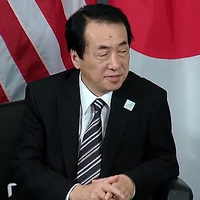
The United States and Japan commemorated the 50th anniversary of their security alliance last month with an uneasy sense of ambivalence. On the one hand, the sheer fact that the alliance, firmly rooted in the common interests and shared values of both countries, has persisted for so long is reason enough to celebrate. The U.S. and Japan, in addition to being democracies, are the world’s top two economies and two of the largest funders of multilateral institutions. They share a long list of common objectives, from ensuring that China’s rise is peaceful and deterring a nuclear North Korea to policing […]
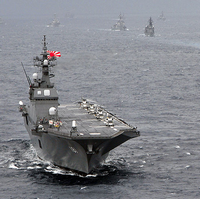
On Sunday near Okinawa, the Japanese navy spotted two Chinese warships sailing south into the Pacific. The Chinese vessels were in international waters, but their proximity to Okinawa, which hosts a preponderance of U.S. and Japanese military forces, alarmed Tokyo. As a courtesy, navies traditionally announce their routine cruises in advance, particularly when one nation’s ships might pass close to another’s territory. Sunday’s infraction of that protocol was not the first for China. Just three months prior, two Japanese warships patrolling around Okinawa had discovered an unannounced flotilla of at least 10 Chinese vessels, including two submarines. During the encounter, […]
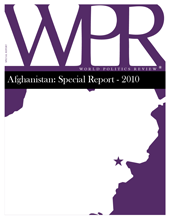
This World Politics Review special report is a compilation of WorldPolitics Review’s top articles on Afghanistan from December 2009 through June 2010. It is an update of WPR’s first special report on Afghanistan, published in 2009. Below are links to each article, which subscribers can read in full. Subscribers can also download a pdf version of the report. Not subscriber? Not a subscriber? Subscribe now, or try our subscription service for free.Obama’s Afghanistan Plan: The Partner ProblemBy Richard WeitzDecember 2, 2009 Navigating Roadblocks in AfghanistanBy Nikolas GvosdevDecember 4, 2009 Can Spheres of Influence Solve Afghanistan?By Nikolas GvosdevDecember 11, 2009 The […]
Last month, 600 soldiers from the Forces Armées des Forces Nouvelles, a coalition of rebel movements in Côte d’Ivoire, laid down their arms as part of a process to disarm rebel groups and integrate them into the national army. In an e-mail interview, I. William Zartman, professor emeritus at Johns Hopkins University’s School of Advanced International Studies, discusses ongoing conflict management in Côte d’Ivoire. WPR: What is the current status of post-conflict reconciliation in Côte d’Ivoire? I. William Zartman: Côte d’Ivoire has had a conflict management, not a conflict resolution, situation for the last three years, in that violence has […]
